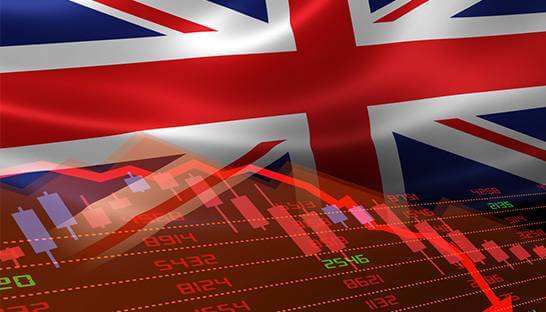Current State of UK Economy
Liz Truss, the new prime minister of the United Kingdom, is trying to change the country’s economy. She has taken bold measures, but some investors are nervous about the consequences. These measures include slashing banker bonuses and imposing huge tax cuts.
Interest rates
The current state of the UK economy has been a subject of debate in recent weeks. Following the government’s tax and spending plan, which sent gilts and short-term interest rates soaring, the Bank of England decided to buy government bonds in a bid to restore order to the market. This action resulted in a £65 billion buyout of long-dated bonds.
Recent data shows the UK economy is still fragile and could be at the start of a recession. Although the economy grew more slowly than expected last month, the Bank of England’s economists are confident the country is avoiding a recession. However, the huge amount of borrowing needed to fund the UK budget, which is widely seen as benefiting the rich at the expense of the poor, has sent investors scrambling.
Under investment
The chronic underinvestment has been an ongoing problem in the UK economy for decades. Public and private investment has consistently lagged behind other advanced economies. The Bank of England estimates that around 90% of the UK’s economic growth is based on consumption and private debt. The Labour Party’s growth plan aims to increase public investment to Scandinavian levels and stimulate private investment.
The UK economy has long underinvested in infrastructure, innovation, and skills. This has led to a range of problems including high living costs, housing shortages, fragile supply chains, and mismanagement. The NHS is on the brink of a crisis and is one ’emergency’ away from collapse after the Covid-19 pandemic. It is important that the UK government invest more to boost productivity and create jobs, but the Government’s investment strategy does not provide sufficient details on where this money will come from.
Cost-of-living crisis
The Cost-of-living Crisis has hit the UK economy hard, with prices rising faster than incomes. In the last year alone, UK households reported a 91 percent increase in the cost of living. This crisis has a number of causes, including high inflation and low wage growth, and is felt most by low-income households. It is important to note that the crisis is not just affecting the UK and is a global situation. One recent survey shows that 57% of British consumers have been severely or moderately affected by the crisis. This figure is expected to rise to 76% in the next three months. The research is being conducted by NielsenIQ, whose head of business insight Mike Watkins says that consumers are focusing on the price of their weekly shopping, a situation that has already led to a decrease in supermarket sales.
Tax cuts
Liz Truss has promised to make some changes to the UK economy. Her bold actions to boost the economy have caused some unease among investors. These include the scrapping of banker bonuses and huge tax cuts. Truss’s economic policies may seem innocuous at first, but the long-term effects are likely to prove disastrous. The UK has already suffered from the worst currency crisis in modern history, accompanied by the highest inflation rate in 40 years, and the cost of living. This has sent global financial markets into a tailspin. The recent tax cuts by Liz Truss and other government leaders facing similar dilemmas and the economic fallout from Brexit are all contributing factors.
Brexit
As the UK is leaving the European Union, economists are beginning to separate the effects of Brexit from the damage caused by the COVID pandemic. John Springford, the Deputy Director of the Centre for Economic Research (CER), has studied how Brexit and COVID will affect the UK economy. He also compares the UK’s performance to other advanced economies and countries with similar records.
One of the major implications of Brexit for the UK economy is that British exports will become less competitive. In addition, the weaker sterling will cause import prices to rise. This will raise inflation and cut real wages. In turn, this will lead to a shift away from British exports. As the UK is already struggling to fill job vacancies in all sectors, this would put even more pressure on its economy. It would also erode productivity, which is already lacking.
It is becoming more difficult to argue against a ‘hard’ economic landing. It certainly ‘feels’ like we are already in a recession!
First published by Digital Zeitgeist on 03.10.2022
All opinions and views expressed or suggested by the Digital Zeitgeist are not necessarily the same opinions and views held by or suggested by GPM-Invest plus any and all partners, affiliates, parties, or third parties of GPM-Invest. Any type of media distributed by GPM-Invest IS NOT financial advice. Please seek advice from a professional financial advisor

